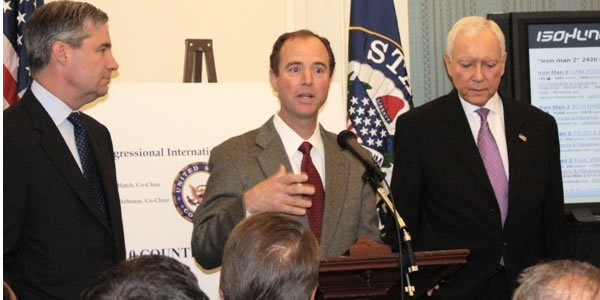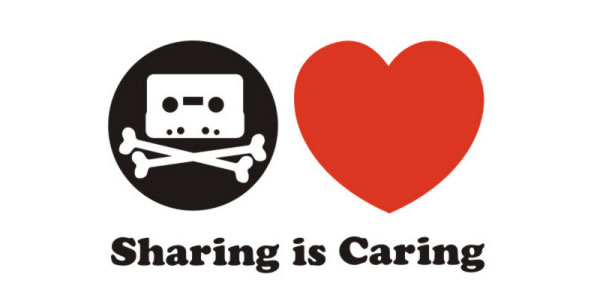Like an unwanted pack of rats, the Recording Industry Association of America (RIAA) has fought a dragged out battle against the illegal distribution of music on the internet since the late 90s. Using strategic hit and run tactics, the organization is credited with taking down some of the most popular free peer-to-peer (p2p) file sharing platforms, while forcing others to restructure. Flying under the radar as of late, we’ve heard little from the RIAA in recent history. That is, until last week.
Just when you’d thought they had left the public eye for good, the RIAA has come out of the shadows and stepped back into the limelight in their continued war against piracy. Fresh off of a victory against LimeWire, the organization has become aggressive in their legal pursuits once again. This time, however, they aren’t working alone. Now moving forward with a team of powerful allies, the RIAA is more hell bent on success than ever before.
The Latest from the War Front
Winning a legal battle against file sharing giant LimeWire last week, the stage was set for the music industry’s blitzkrieg on internet file sharing. In a ruling by U.S. District Judge Kimba Wood, LimeWire was found liable for copyright infringement. Of course, the RIAA wouldn’t be stopping there. The quiet days that followed would serve as the calm before the storm.
The storm hit on Monday, when internet users worldwide found that The Pirate Bay was no longer online. Why? Thanks to the RIAA’s old pals over at the MPAA. The MPAA, which consists of six of the largest studios in Hollywood (20th Century Fox, Paramount Pictures, Sony Pictures, Universal Studios, Warner Bros., and Walt Disney Motion Pictures Group) had obtained an injunction against CB3ROB Ltd.
CB3ROB Ltd. owns Cyberbunker, The Pirate Bay’s host and bandwidth provider. The injunction was granted from the Regional Court of Hamburg, who concurred that CB3ROB and its owner Sven Olaf Kamphuis were liable for infringement without an oral hearing.
Yesterday, much to the delight of avid torrenters, The Pirate Bay came back online with a brief explanation of the situation. Despite speculation, Cyberbunker had not, in fact, disconnected the site in response to legal pressure. The Pirate Bay announced that they had chosen to move to another host in order to save Cyberbunker from further legal issues and fines in this message:
PLZ LEARN: TPB CANT BE SHUT DOWN
LOL!
AS U MITE HAS READ OR NOTICD, PEEPS ONCE AGAIN R TRYIN 2 SHUT US DOWN. DIS WILL NOT SUCCED, LOL. OURS RLY NICE WEBHOST WUZ THREATEND WIF RLY HUGE FINE, SO WE DECIDD 2 MOOV TEH SIET SO DAT THEY DIDNT GOT INTO TROUBLE, LOL. TEH DECISHUN 2 MOOV WUZ TAKEN BY US, TEH PIRATE BAY, LOL.
TEH PIRATE BAY IZ AN UNSINKABLE SHIP. IT WILL SAIL TEH INTERWEBS 4 AS LONG AS WE WANTS IT 2. REMEMBR DAT, K THX.
TPB, ONLY IN IT 4 TEH LULZ SINCE 2003
The Pirate Bay, online once again, is now hosted by The Pirate Party.
The 2010 Anti-Piracy Caucus “Watch List”
The Anti-Piracy Caucus is a government group that is “committed to protecting American intellectual property and reducing the scourge of piracy abroad.” While their name may sound ridiculous, they are no laughing matter.
Following the events that have taken place throughout the last week, the Anti-Piracy Caucus coincidentally released their 2010 “watch list” today. The list, which is released annually, aims to reduce piracy by putting the spotlight on a handful of sites that are widely used for illegal file sharing.
Here’s who made the cut this year:
Although the Anti-Piracy Caucus didn’t arrange their list of targets in any particular order, it’s clear that The Pirate Bay is public enemy number one.
A List Full of Surprises
While it should come as no surprise that websites such as The Pirate Bay and IsoHunt made the “watch list,” the remaining targets are somewhat unexpected. Baidu, for example, is the most popular and widely used search engine in China. Sure, you can find torrents by searching for the right keywords on Baidu… but it’s a search engine. Who will make the 2011 watch list? Google? Bing?
If the Anti-Piracy Caucus, RIAA, and MPAA are targeting Baidu, it’s only reasonable to assume that they are at least considering taking legal action against them. Now, not only going after the torrent sites themselves, they are targeting the search engines that lead internet users to them. What’s next? Will the RIAA and their legal squad take it a step further and start suing computer manufacturers for providing a means to connect to the internet? I mean, you’ll need a computer to access the internet, conduct a search, find a torrent site, and download music, right? Where is the line drawn?
Next, we have RapidShare, the popular file hosting provider we have all come to know and love. Does RapidShare have music files available to download? Yes. Is Illegally distributing music files the primary objective of the site? No. Obviously, given the site’s popularity, every upload cannot be monitored. There is absolutely no way that RapidShare can stop every copyright infringing upload from going live without rendering the site virtually useless.
Including mp3fiesta and RMX4U on the list is yet another mystery. You’d think that with the plethora of torrent sites out there, the Anti-Piracy Caucus, RIAA, and MPAA would go after more popular sites such as Demonoid. That, however, would require logic — something that the RIAA and their buddies rarely show signs of.
Winning the Battle, Losing the War
The RIAA has won several battles throughout the 12 years they have actively fought internet piracy, but the war has yet to be won. Will the war ever be won? Is it even a possibility? Sure, many of our favorite file sharing platforms have become a casualty of war, but there has always been another service to take its place. Can the RIAA effectively take down every service that hosts music free for download? More importantly, what are the repercussions of doing so?
In order to effectively stop copyright protected music from hitting the web, the RIAA would have to find a way to legally prohibit websites from hosting any user uploaded music file. Furthermore, they would have to legally pursue every webmaster that has uploaded copyrighted material to their website. Keeping this in mind, there is no reasonable way for them to eliminate piracy. Their only hope, really, is for the internet to cease to exist.
Though the RIAA likes to cloak their agenda under the guise of protecting their artists, that is hardly the case. The companies that make up the RIAA (EMI, Sony Music Entertainment, Universal Music Group, and Warner Music Group) are losing millions of dollars every year as a result of piracy. While this, no doubt, has an effect on the musicians that they represent, my guess is that they wouldn’t be doing much to stop piracy if it only came out of the artist’s pocket.
While piracy can’t be stopped, it’s effects on record sales can be limited. How? Here’s a novel idea: by providing quality products at a reasonable price. With all of the weak offerings record labels and music distributors are pushing on consumers, it’s no wonder piracy is so widespread. No one wants to pay 17 bucks for an album that could turn out to be complete garbage. Set higher standards, lower your prices, and give your customers an end product that is actually worth paying for.
What will come of the recent attacks on piracy? Only time will tell. How do you think the legal actions against sites like The Pirate Bay will effect the future of piracy and file sharing as a whole?







GIPHY App Key not set. Please check settings